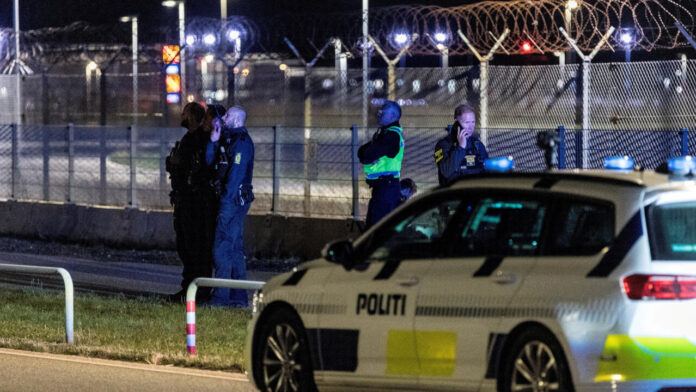In response to a surge in unidentified drone activity and escalating tensions with Russia, Denmark has announced a full ban on civilian drone flights across its airspace during next week’s EU leaders’ summit in Copenhagen.
Drone Ban Amid Intelligence Fears and Military Escalation
In a rare and sweeping move, the Danish government has ordered a nationwide ban on civilian drone flights from Monday to Friday next week, as European leaders gather in Copenhagen for a high-level summit. The ban, officially justified on grounds of security, comes amid a wave of drone sightings—many unidentified—near sensitive military and civilian infrastructure since September 22.
According to Denmark’s Ministry of Transport, the aim is clear: to eliminate confusion between legitimate drone operations and possible hostile surveillance or sabotage missions. “This measure removes the risk that enemy drones might be mistaken for legal ones, and vice versa,” said Transport Minister Thomas Danielsen in a press release on Sunday.
Russian Shadow Looms Over the Baltic
Although no formal attribution has been made, Copenhagen has strongly implied that Russia could be behind the drone incursions—an accusation Moscow quickly rejected. The Danish army confirmed drone activity near military installations for a second consecutive night but offered no details on the incidents or the military’s response.
The timing of the drone flights is notable. Just days ago, Denmark announced it would acquire long-range precision strike weapons for the first time, citing the growing Russian threat as a long-term strategic concern.
Prime Minister Mette Frederiksen didn’t mince words: “There is one country that represents a threat to European security, and that is Russia.”
NATO Tightens Surveillance in Baltic Skies
The issue is not isolated. Neighboring Norway is also investigating drone sightings near its largest airbase, Orland, where its fleet of F-35 fighter jets is stationed. Germany, too, has authorized its military to shoot down drones after detecting a “swarm” of unidentified UAVs over Schleswig-Holstein, bordering Denmark.
NATO has taken these events seriously. Alliance spokesperson Martin O’Donnell confirmed late Saturday that the bloc had intensified its ISR (intelligence, surveillance, reconnaissance) operations in the Baltic region. This includes the deployment of multiple monitoring platforms and at least one air-defense frigate west of Russia.
Harsh Penalties and Legal Exemptions
The drone ban applies only to civilian and commercial operators. Military drones, state-operated aircraft used for police, emergency, or health missions remain exempt. Any civilian who violates the new ban faces hefty fines or up to two years in prison, according to the Ministry of Transport.
Authorities report over 500 public drone sightings in recent days. Most were deemed irrelevant, but Danish police remain on high alert. Minister Danielsen emphasized the need to simplify the job of law enforcement and intelligence services: “Our authorities must be able to use their resources effectively to protect Danes and our guests.”
Escalation or Pretext?
The unprecedented move raises broader concerns about civil liberties and freedom of movement in the context of rising tensions with Russia. While official narratives focus on national security, some observers question whether this constitutes another step toward the normalization of wartime measures in European domestic policy.
The decision echoes a growing sentiment among Nordic and Baltic states: the era of peacetime assumptions is over. What remains uncertain is whether these measures are a prelude to open conflict—or a strategic bluff in the great game of deterrence.



